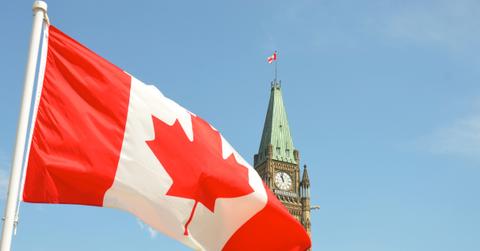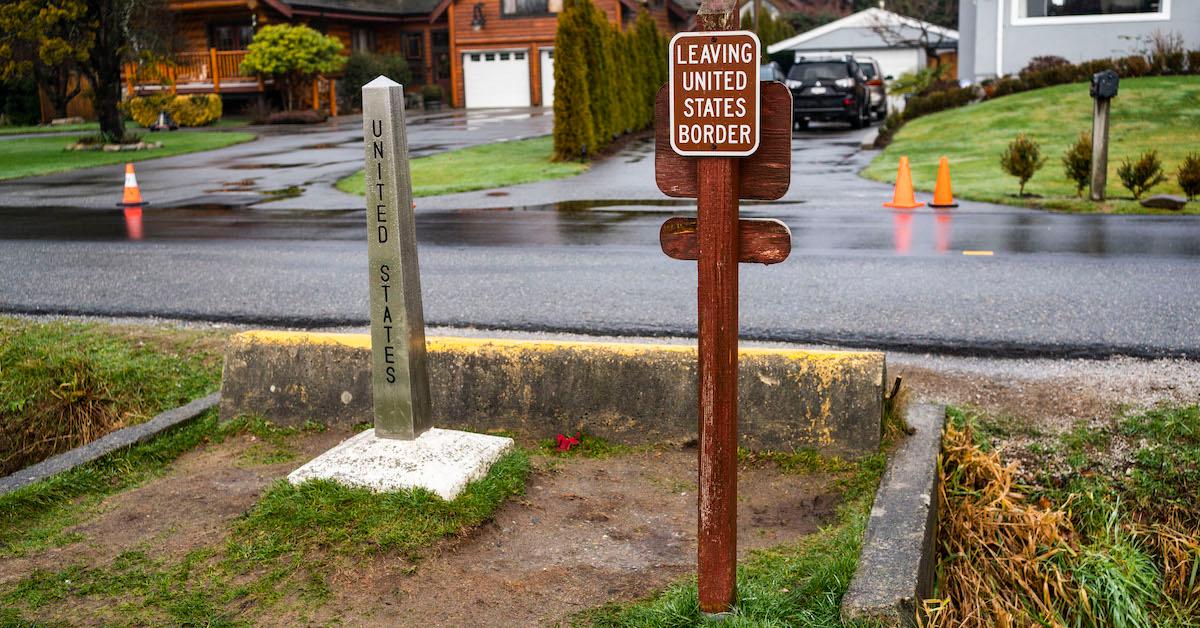The U.S./Canada Border Reopens Today — Here's What You Need to Know Before You Go
Canada has reopened its borders to U.S. travelers who are fully vaccinated and comply with other COVID-19 safety protocols. Here are the restrictions and exceptions.
Aug. 9 2021, Published 9:12 a.m. ET

Vaccinated U.S. travelers may now go to Canada.
Monday, August 9, 2021 is a milestone for Americans who wish to travel recreationally to Canada. After nearly a year and a half of restrictions on non-essential travel across the borders from the United States to Canada, the Public Health Agency of Canada has announced the reopening of its borders.
Since March of 2020, Canada has prohibited all travel deemed non-essential from the U.S. to Canada to prevent the spread of COVID-19. It has also required a three-night stay in a government-authorized hotel, a requirement which ends on Monday as well. But who is allowed to travel to Canada, and are there still COVID-19 protocols to follow?

COVID-19 safety requirements for travel to Canada
The lifting of the Canadian travel ban only applies to fully vaccinated travelers from the U.S. August 9 is the date when fully vaccinated American citizens and permanent residents of the U.S. may begin traveling to Canada. Tentatively, all other foreign nationals may resume travel to Canada on September 7 if they’re fully vaccinated.
To travel to Canada, U.S. travelers must now:
Be fully vaccinated for at least 14 days prior to entering Canada
Provide proof of vaccination status in either English or French
Have one of the following accepted vaccines: Pfizer, Moderna, AstraZeneca/Covishield, and Janssen (Johson & Johnson)
Use ArriveCAN to enter mandatory information 72 hours before arrival (either via the app or online)
Meet pre-entry testing requirements
Keep pre-entry test results for 14 days
COVID-19 testing requirements for travelers
Testing requirements apply for U.S. travelers to Canada. All travelers aged 5 and up, regardless of vaccination status, must provide proof of a COVID-19 test result.
Only molecular tests, not antigen tests, will be accepted, and they must have been administered by a “reputable laboratory or testing facility”. A complete list of accepted tests is available on the Canadian travel website.
A negative COVID-19 test result may be submitted, in which case tests must be taken within the 72-hour window prior to departure to Canada.
If you are symptom-free but have tested positive, you can provide proof of a positive molecular test conducted between 14 and 90 days before entry to Canada. A positive test result may exempt you from taking an arrival test.
Other requirements may apply in specific provinces of Canada.
Where Americans can enter Canada
Certain airports are approved for American travelers to arrive:
- Calgary International Airport
- Edmonton International Airport
- Halifax Stanfield International Airport
- Montreal-Trudeau International Airport
- Ottawa/Macdonald-Cartier International Airport
- Quebec City Jean Lesage International Airport
- Toronto Pearson International Airport
- Vancouver International Airport
- Winnipeg James Armstrong Richardson International Airport
Certain land borders are available to American travelers as well.
Can unvaccinated kids travel to Canada?
Since children under 12 aren’t eligible to receive any of the coronavirus vaccines, the vaccination requirement doesn’t apply, and there is no more 14-day quarantine requirement, as long as they are traveling with a parent who is fully vaccinated.
Children must be tested on the day of arrival and on day 8 of their visit. Children are also advised to practice precautions and not be in large groups such as a daycare or camp setting for 14 days after arrival.
